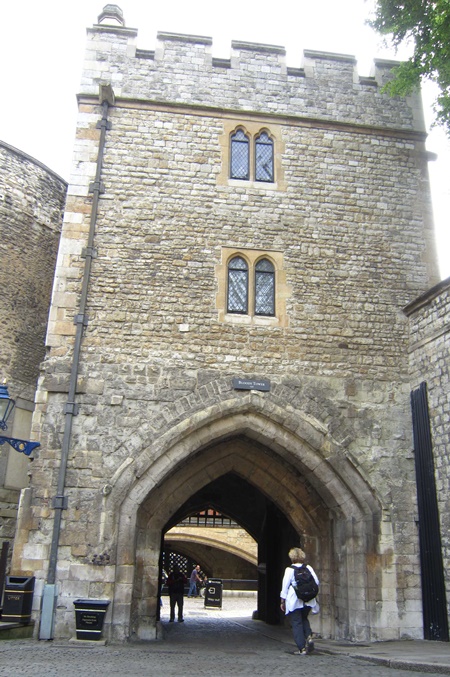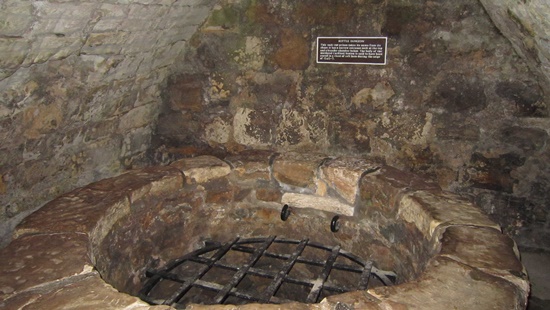Reformation Pilgrimage Testimony
Samuel Joseph
Introduction
It has been a privilege to be part of FEBC’s 2nd Reformation Pilgrimage to England and Scotland, led by Dr and Mrs Jeffrey Khoo. We were reminded from the outset that this was a pilgrimage, not a holiday: our purpose was to learn from history, in order that we might know and glorify our God more, and be inspired to greater zeal in His service. Rather than give an abbreviated summary of each point on our itinerary, however, the aim of this testimony is to focus on some particular lessons and impressions gained from the Pilgrimage as a whole.
God’s Providence in History
The Reformation in England took place at a time when politics and religion were closely intertwined. This was a time when religion was important to everyone, for various reasons. As such the sheer scale of the Reformation “drama” in England is something that was impressed on us throughout our Pilgrimage: it involved Kings and Queens, Cardinals and Archbishops, as well as the common man on the street. This was a time of great national upheaval; difficult to comprehend for many of us who are so accustomed to a humdrum 21st-century life!
The dominance of Catholicism, and the growing opposition led by the Reformers against the Roman church, meant that political decisions frequently involved religious considerations. It is important for us to note, therefore, that many of the decisions made in “support” of the Reformation were not in fact religiously motivated. For example, Henry VIII broke away from the Roman Catholic Church because he wanted an heir, not because he recognised its apostasy from the truth of God’s word.

The “Bloody Tower” of the Tower of London, where some Protestants were imprisoned by Queen Mary.
At the same time, we must not forget that the opposition faced by the reformers was religiously motivated, in some cases. For example, the Catholic Queen “Bloody” Mary, who acceded to the throne after Henry VIII, wanted to return England to Catholicism and burned almost 300 Reformers and Protestants at the stake. Why would God allow such opposition even to His faithful servants? This is a difficult question to answer; but in all this God is glorified. As the Puritan saying goes, “God’s purposes are secret, but His promises are plain.” Even in their suffering these reformers clung to the truth of God revealed in His word, and so even by their death they glorified God.
In the final analysis, then, it may be said that the history of the Reformation involves the actions of men who ignored God, men who opposed God, and men who obeyed God – and yet all these ultimately served the will of God. In this we are reminded that God’s sovereignty is universal, extending to every creature and every event of history. The God who cares for the sparrow – and who cares for us – is the same God who moulds the destinies of nations for His own glorious purpose.
The Zeal of the Reformation Saints
In this turbulent climate, the unwavering zeal of the Reformers and Puritans was a stark lesson for us who are so prone to take our faith lightly. We read in Hebrews 11:36-37 of those who suffered “mockings and scourgings,” and “bonds and imprisonment,” who were “destitute, afflicted, tormented.” All through history men and women have been called to suffer for the sake of Christ, and the Reformation period was no different. For example, we learned of John Bunyan, who was imprisoned for refusing to conform to the strict liturgy of the Church of England. Bunyan was a “prisoner of conscience,” he could have had freedom at any time, if he only agreed to compromise his beliefs; but he would not. It was during one of his imprisonments that Pilgrim’s Progress was written.

The Bottle Dungeon, cut into the rock below St. Andrews Castle, where George Wishart was kept imprisoned.
Again, we learned of George Wishart, a martyr of the Scottish Reformation, who was imprisoned in the “bottle dungeon” of St. Andrews Castle for preaching the gospel. The Archbishop of St. Andrews, recognising that the reformers were a threat to his political and ecclesiastical authority, put Wishart on trial and sentenced him to be burned at the stake. The examples of such events are too numerous to list, and they must cause us to examine ourselves.
Perhaps it is fairly common to ask ourselves whether we would suffer imprisonment or scourging or even die for Christ; yet in our present situation we are unlikely to suffer to the same extent as those we read about in history. But that doesn’t excuse us! What about simply giving our time and effort to serve God in some small way? Will we do even that? If we will not live for Christ every day, as these men did, how can we say we would die for Him?
Conclusion
It is a sad fact that much of this history has been forgotten. On visiting Westminster Abbey we were told of English history in terms of monarchs, rather than of God; likewise when we visited Hampton Court Palace. To many it seems the Reformation is something almost to be ashamed of; a mistake to be quickly reversed and undone. Yet against the backdrop of human machinations the golden thread of divine Providence shines unmistakeably – but only for those with eyes to see it. May we not overlook the hand of God in history; nor in our own lives, but praise Him daily for His goodness in watching over and providing for us. And may we not take this goodness for granted, but daily commit ourselves to serve God in every way we can: that we will not be ashamed to stand before Him, and give account of how we have spent the time He has granted us.
The Pilgrim Movement started in this church with the Rev Richard Clyfton as Rector from 1555 to1605. The church is open for worship on the Lord’s Day and still uses the King James Bible. “Thus saith the LORD, Stand ye in the ways, and see, and ask for the old paths, where is the good way, and walk therein, and ye shall find rest for your souls.” (Jer 6:16).


